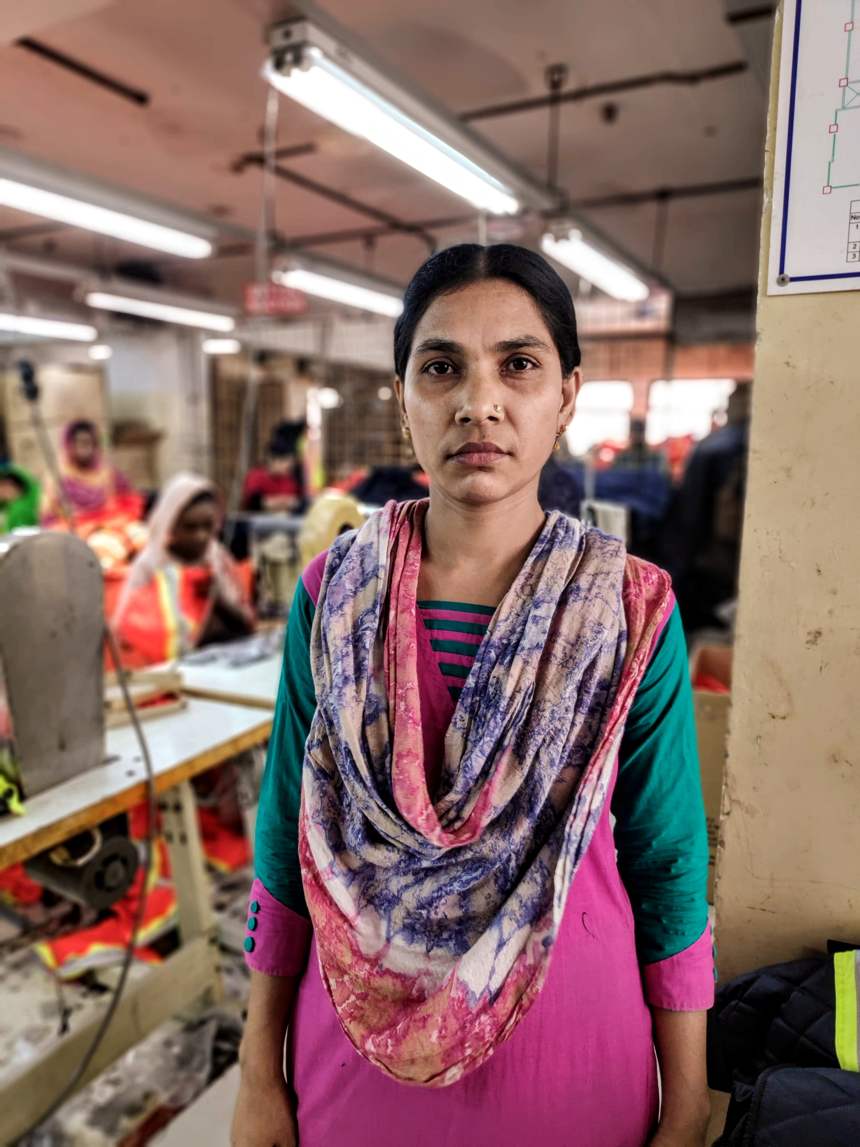
The move from cash to digital payments in the ready-made garment industry in Bangladesh has opened new doors for strengthening the digital ecosystem for low-income earners. The digitization of wages provides a multitude of opportunities — from empowering women to improving access to financial services to enhancing the overall quality of life for workers and their families — and lays the foundation for advancing financial inclusion for low- and moderate-income workers in Bangladesh.
Bangladesh is the world’s second-largest apparel maker and seller, backed by a robust ready-made garment industry (RMG). For several years, many development programs have advocated digitizing the wages of the workers in the RMG sector to further the financial inclusion agenda and gain credibility in the international market. Thanks to the persistent interest of international donors, buyers, and local DFS players, around 1.5 million workers received digital wages at the beginning of 2020. This was still less than half of the total RMG workforce (4.1 million), of which the majority are women. Access to Information (a2i) program of the ICT division and Better than Cash Alliance (BTCA) had pledged that by 2021, 90% of RMG workers will be receiving salaries digitally. The journey to digital has been fast-tracked by the COVID-19 pandemic as Bangladesh Bank ordered all factories to digitize wages in two weeks’ time. By the end of April, 1.92 million new mobile financial services (MFS) wallets were created for the purpose of receiving factory wages. The move can be considered the most transformational one in Bangladesh’s digital financial inclusion narrative so far.
All major MFS providers in Bangladesh — namely bKash, Rocket (DBBL), and Nagad — were gearing up to onboard workers onto their platforms when the government-imposed movement restrictions due to the COVID-19 pandemic. Additionally, they took up the challenge of ensuring liquidity at agent points. The regulator then enacted special cash-out fees for RMG workers (0.4%, slashed from 2%) so that accessing the funds does not become costly for them. Though banks are not part of this accelerated inclusion, some have already extended payroll services for RMG workers.
When individuals have access to financial services and there is a regular inflow of funds (salaries) into their accounts, it can create a world of opportunities for both individuals and healthcare providers. Since the time wages have been digitized by the central bank’s order, several healthcare organizations have reached to collaborate with Bangladesh Garment Manufacturers and Exporters Association (BGMEA), the trade body that governs factories. Several of these healthcare players proactively seeking partnerships with the RMG industry include Praava Health, Common Health, Maya, and Inspectorio. The heightened interest from healthcare providers to serve RMG workers validates the initiatives like FinTech for Health in a country like Bangladesh, the importance of fintech and healthcare working together to solve healthcare financing challenges cannot be emphasized enough as public policies do not yet prioritize the agenda of Universal Health Coverage (UHC).
Currently, the on-site medical services in most Bangladesh factories are inadequate and ineffective, limited to basic screening and first aid, and completely ignore the very great impact occupational health injuries can have on employees. By not addressing these conditions, workers fall victim to the health poverty trap, where the cycle of poor health leads to poor productivity, causing the worker to eventually fall into poverty. Last year, Pragati Life Insurance piloted a health insurance model and found positive health-seeking behaviors of the workers increased when they enrolled in the program. In addition, factory owners’ return on the investment in workers’ health had a positive impact on workplace productivity and efficiency. While historically, buyers and labor rights advocates have obligated factory owners to adopt safe workplace practices, protecting the long-term health of workers proves to be the biggest benefit to all involved.
Improving financial inclusion for women is an important principle of Fintech for Health, as women are often the “glue” holding families together. Eighty percent of the RMG sector workers in Bangladesh are women. Daily they bear the physical and emotional burden of hard labor to support their families all while maintaining households and caring for their children. Ensuring affordable healthcare for these women will bring about multifold benefits — of which one of the most crucial being economic stability for the entire family.
There is abundant room for designing innovative health financing solutions in Bangladesh and the factory workers will be a key beneficiary of such initiatives. Though the COVID-19 pandemic has caused an economic downturn, we must be prepared to act as the economy gears up again in a post-COVID world. In addition to piloting health financing solutions, there are also opportunities for bundling other services with healthcare, for example, retail, housing, and other essentials that are targeted toward the workers. Employees’ transaction histories can help in providing credit indexing that allows for immediate healthcare loans that can be paid back in manageable installments.
The well-being of workers in Bangladesh’s primary export-oriented industry has received major international attention during the past decade. Slowly but surely, the workers are benefitting from various interventions designed to improve their quality of life and ease their financial interactions. Access to digital technology, innovative financial solutions, health education, and financial literacy services are going to play a crucial role from here onwards. Innovative health financing can address these needs through patient-centered, scalable, customized interventions that improve the quality of life for RMG workers in Bangladesh.
Cover photo by Nabila Khurshed
